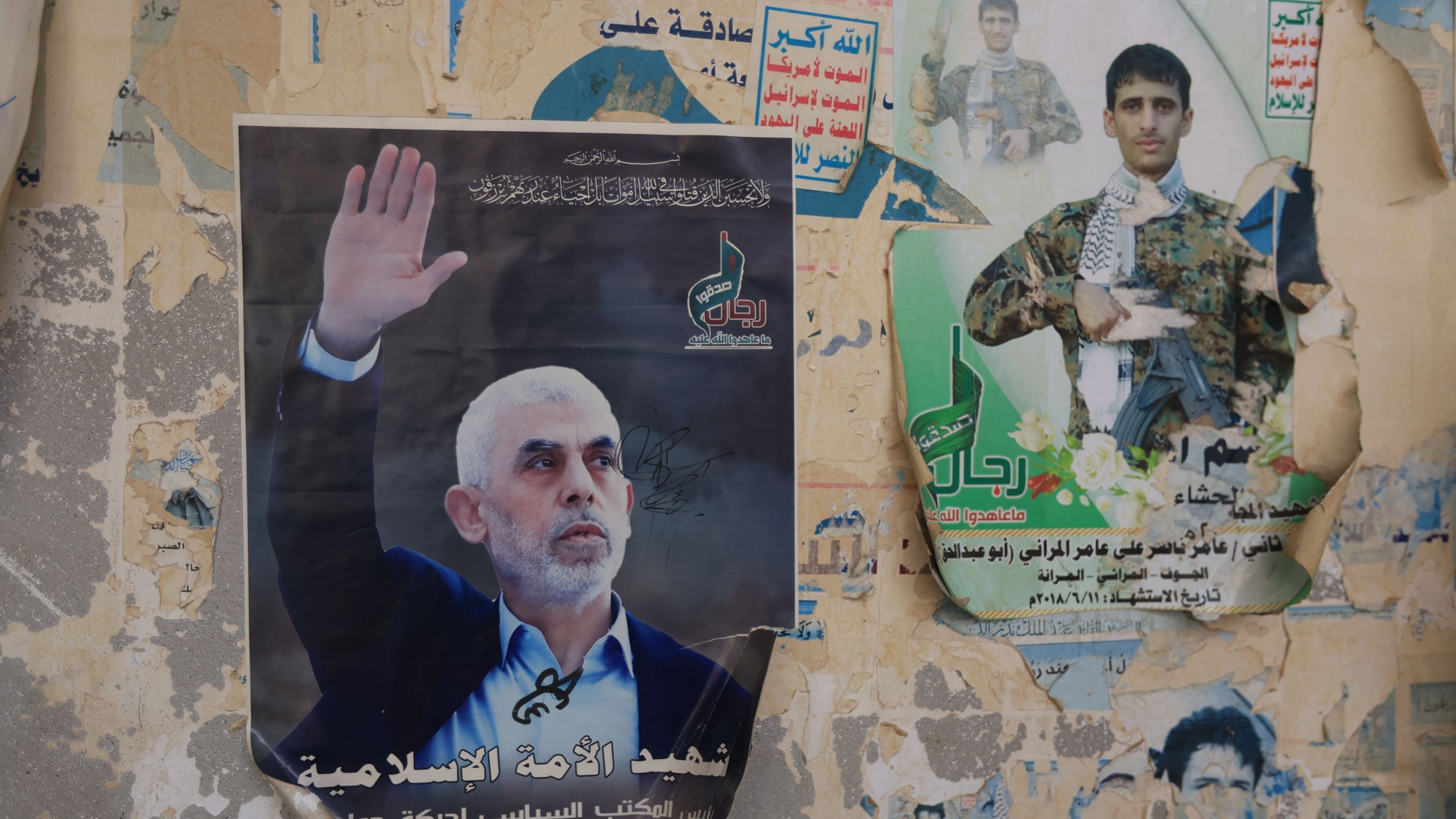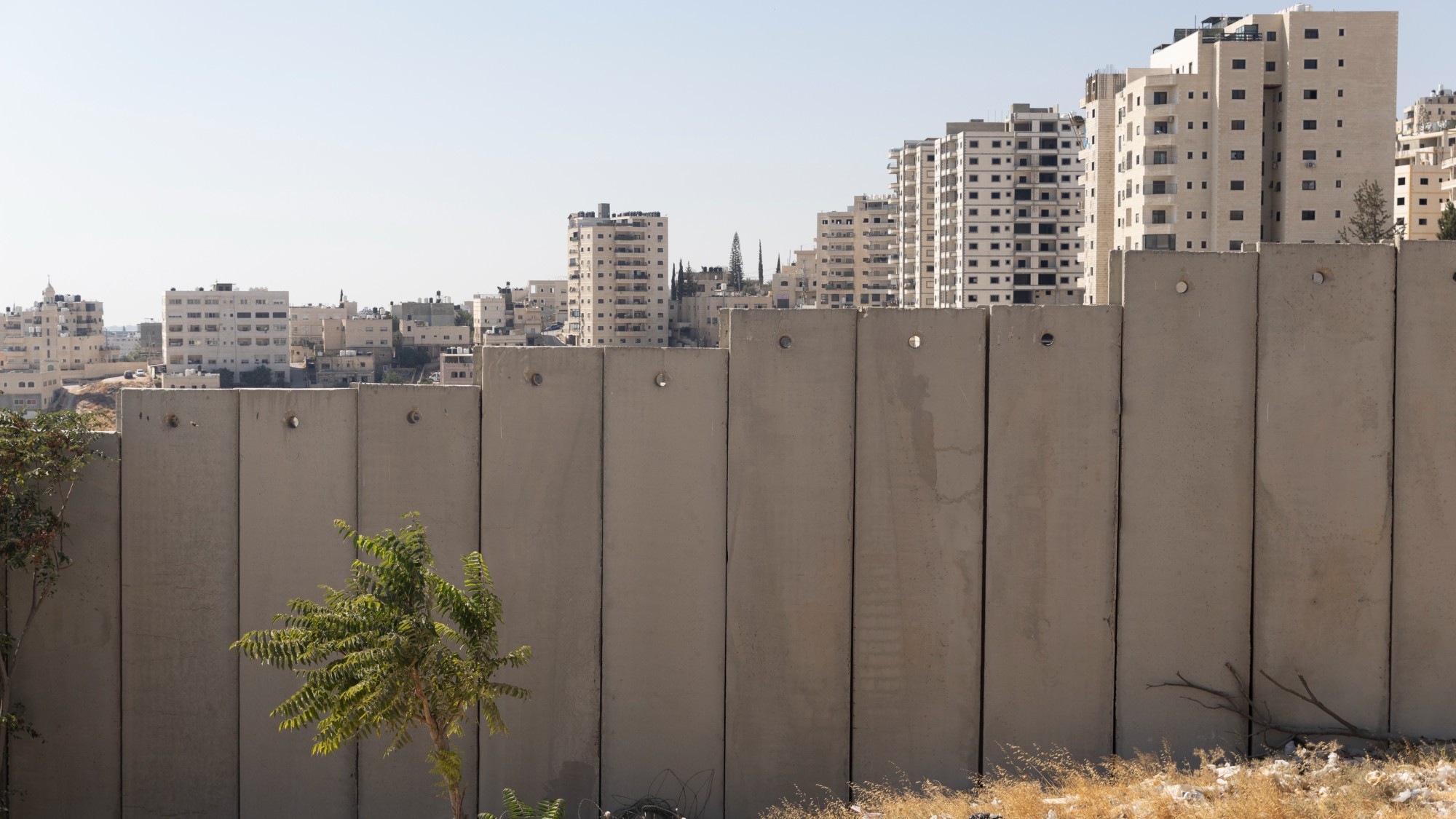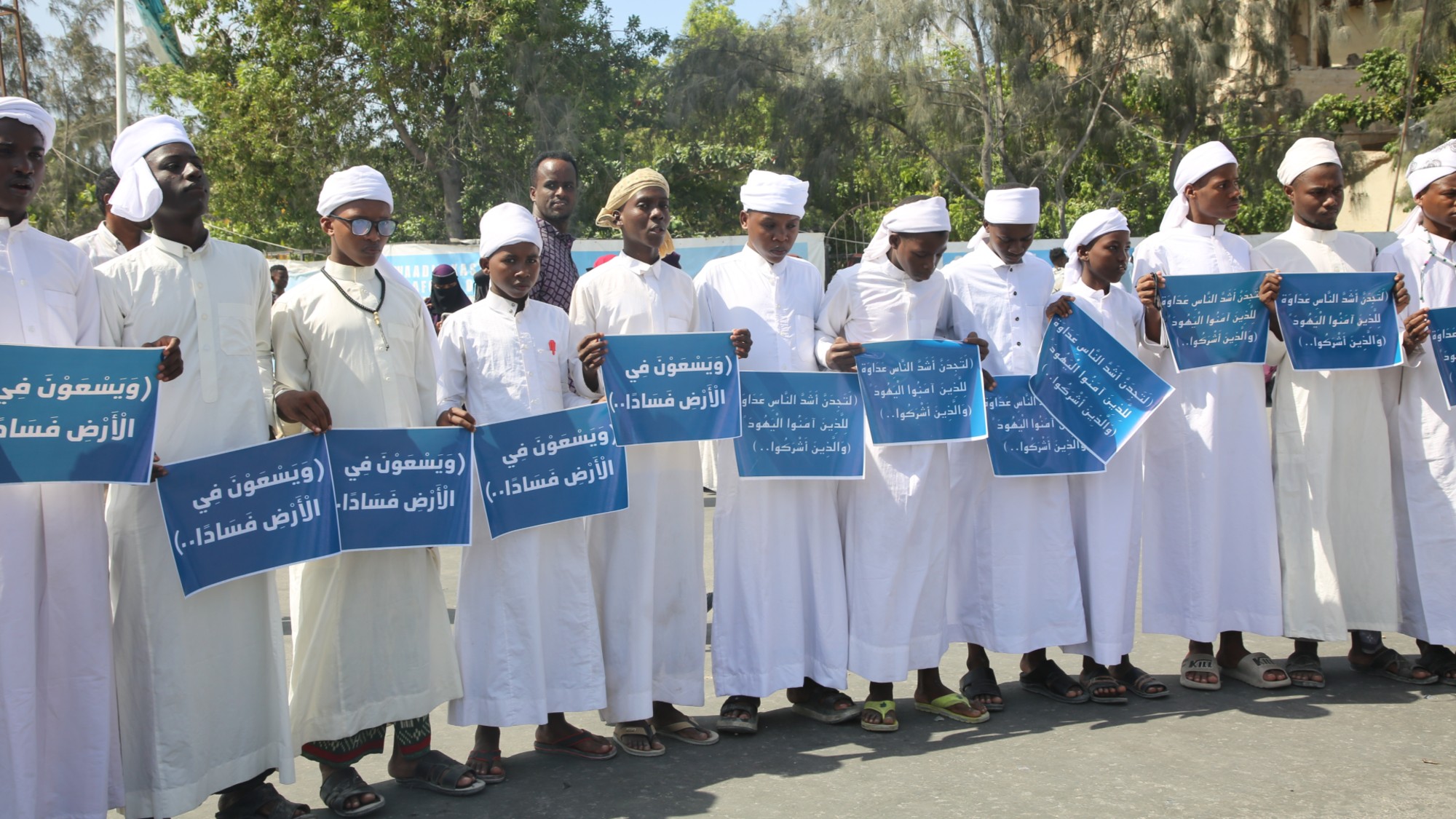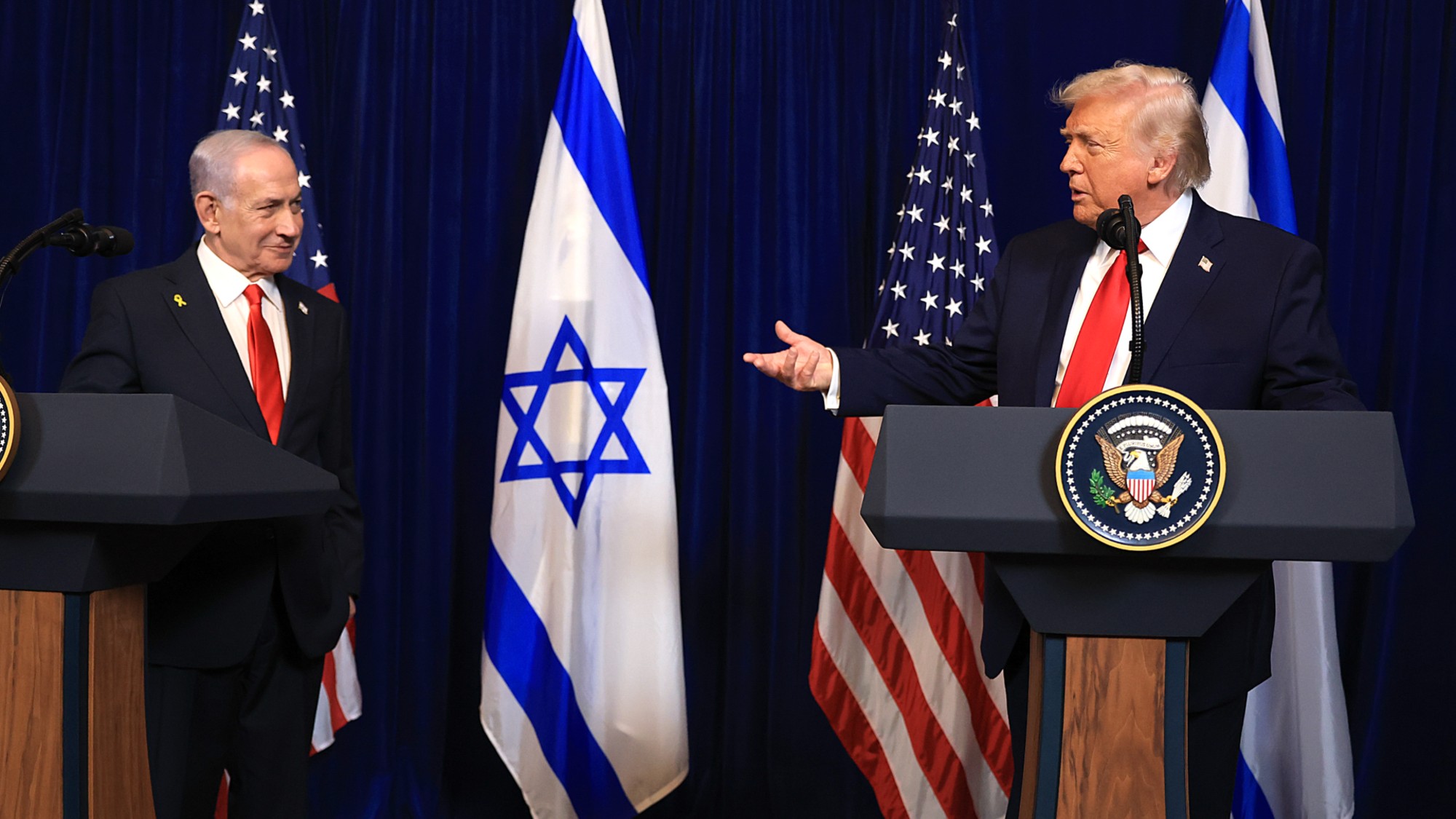Is Hamas losing control in Gaza?
Balance of power among remaining leaders shifts as rival group emerges and population turns

Hamas' two-decade rule over Gaza may finally be coming to an end, amid the Israeli occupation, challenge from a rising rival militia, and growing opposition among its own people.
In response, the Islamist group has suggested in recent statements it could hand over control of Gaza willingly, but does this "signal a real change of heart, or are they just another calculated move to buy time and polish their image on the world stage?", asked The Jerusalem Post.
What did the commentators say?
Confirmation at the weekend of former Hamas military chief Mohammed Sinwar's death "changes little in and of itself", said The Economist. As happened with the killing of previous leaders, the group has been quick to appoint a replacement, "but it could shift the balance within the movement's leadership", which has until now been "dominated by Gazans".
The Week
Escape your echo chamber. Get the facts behind the news, plus analysis from multiple perspectives.

Sign up for The Week's Free Newsletters
From our morning news briefing to a weekly Good News Newsletter, get the best of The Week delivered directly to your inbox.
From our morning news briefing to a weekly Good News Newsletter, get the best of The Week delivered directly to your inbox.
Hamas leaders outside the strip – currently based in Doha, Beirut and Istanbul – "have the upper hand once again". They are "expected to support" a ceasefire deal "relinquishing Hamas' post-war role in Gaza but preserving its standing in the Arab world".
Izz al-Din al-Haddad, the group's new de facto leader in Gaza, "will have to decide now if he wants to be remembered as the man on whose watch Gaza was finally destroyed", an Israeli intelligence analyst said. "He may prefer to be the last man standing after a ceasefire."
An "added challenge" facing the new commander will be "how to keep control of a desperate civilian population, for whom hunger is now proving a more potent force than fear", said The Telegraph.
It has always been hard to assess civilian support for Hamas within Gaza, but a "series of protests in recent weeks has led some analysts to believe that ordinary Gazans' fear of Hamas was waning".
A free daily email with the biggest news stories of the day – and the best features from TheWeek.com
Hamas has responded to the emergence of rival leader Yasser Abu Shabab and his Popular Forces militia in eastern Rafah with a "rising tone of desperation" that is "telling", said The Spectator.
That Abu Shabab's Popular Forces "operate openly – within an IDF-controlled zone, sheltering thousands of Gazan civilians – signals a breach in Hamas' dominance". The movement has "long accustomed itself to a monopoly on governance and security in the strip; now, the spectacle of an armed, non-Hamas force coordinating humanitarian corridors and liaising with international relief efforts strikes at the very foundation of that monopoly".
"Yet behind the public bravado lies a more intricate web," with reports that Abu Shabab receives instructions from a senior adviser to Palestinian Authority President Mahmoud Abbas, as well as support from elements of Israel's security establishment.
What next?
Sensing an opportunity to end Hamas' near 20-year grip on Gaza, Abbas has said the group must "hand over its weapons" and called for the deployment of international forces to protect "the Palestinian people".
In a letter addressed to French President Emmanuel Macron and Saudi Crown Prince Mohammed bin Salman, who this month will co-chair a conference on a two-state solution for Israel and the Palestinians, the veteran Palestinian leader said he was "ready to invite Arab and international forces to be deployed as part of a stabilisation/protection mission with a (UN) Security Council mandate".
In a "sign that Hamas perhaps understands that it is no longer in a position to rule Gaza", it has even offered to turn over the administration of Gaza to a technocratic government, reported Al Jazeera.
The problem is that Israeli PM Benjamin Netanyahu has "two main tasks". The first is to "prolong the war, allowing him to continue using it as an excuse to avoid accountability". The second: to "prevent the break-up of his government" and set himself for an election that must be held before October next year.
Neither of these are served by the complete destruction of Hamas, which means, ironically, its greatest hope of retaining control of Gaza may well lie with Netanyahu himself.
-
 The week’s best photos
The week’s best photosIn Pictures A Viking festival, an inky fingerprint, and more
-
 6 homes with incredible balconies
6 homes with incredible balconiesFeature Featuring a graceful terrace above the trees in Utah and a posh wraparound in New York City
-
 Did Alex Pretti’s killing open a GOP rift on guns?
Did Alex Pretti’s killing open a GOP rift on guns?Talking Points Second Amendment groups push back on the White House narrative
-
 ‘No one is exempt from responsibility, and especially not elite sport circuits’
‘No one is exempt from responsibility, and especially not elite sport circuits’Instant Opinion Opinion, comment and editorials of the day
-
 ‘Human trafficking isn’t something that happens “somewhere else”’
‘Human trafficking isn’t something that happens “somewhere else”’Instant Opinion Opinion, comment and editorials of the day
-
 Trump’s ‘Board of Peace’ comes into confounding focus
Trump’s ‘Board of Peace’ comes into confounding focusIn the Spotlight What began as a plan to redevelop the Gaza Strip is quickly emerging as a new lever of global power for a president intent on upending the standing world order
-
 How Iran protest death tolls have been politicised
How Iran protest death tolls have been politicisedIn the Spotlight Regime blames killing of ‘several thousand’ people on foreign actors and uses videos of bodies as ‘psychological warfare’ to scare protesters
-
 The Board of Peace: Donald Trump’s ‘alternative to the UN’
The Board of Peace: Donald Trump’s ‘alternative to the UN’The Explainer Body set up to oversee reconstruction of Gaza could have broader mandate to mediate other conflicts and create a ‘US-dominated alternative to the UN’
-
 Israel’s E1 zone in the West Bank: the death of the two-state solution?
Israel’s E1 zone in the West Bank: the death of the two-state solution?The Explainer Controversial new settlement in occupied territories makes future Palestinian state unviable, critics claim
-
 ‘The security implications are harder still to dismiss’
‘The security implications are harder still to dismiss’Instant Opinion Opinion, comment and editorials of the day
-
 ‘Let 2026 be a year of reckoning’
‘Let 2026 be a year of reckoning’Instant Opinion Opinion, comment and editorials of the day